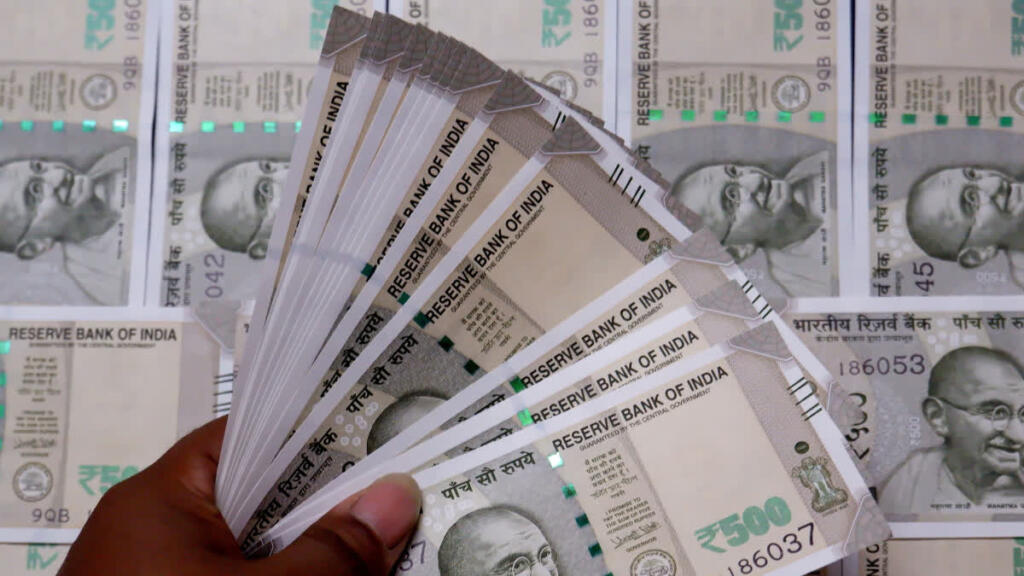To stimulate consumption and ease financial strain on the middle class, the government may consider to reduce personal tax rates. These potential changes are expected to be revealed in July, as Prime Minister Narendra Modi’s administration gears up to present its first Union budget following the Lok Sabha elections. By reducing personal tax rates, the government may aim to increase disposable income for middle-class families, encouraging higher spending and driving economic growth. The focus on tax cuts reflects the administration’s commitment to addressing voter concerns about inflation, unemployment, and declining incomes, ultimately aiming to improve the quality of life for the middle class.
Economic Context
A recent survey highlighted that voters are increasingly concerned about inflation, unemployment, and declining incomes. These issues persist despite the Indian economy experiencing a robust growth rate of 8.2% in the 2023-24 fiscal year. However, consumption only increased by half that rate, indicating that economic growth has not translated into higher consumer spending. Addressing these concerns, Prime Minister Modi underscored his commitment to boosting middle-class savings and improving their quality of life. His administration aims to implement policies that will directly benefit the middle class, ensuring that economic growth leads to tangible improvements in their financial well-being.
Proposed Tax Adjustments
The possible tax cuts may aim to encourage spending and boost savings for the middle class. According to a government source, individuals earning over Rs 15 lakh ($17,960.42) annually could benefit from these changes, up to a yet-to-be-determined limit. These adjustments could entail modifying the tax scheme introduced in 2020, which currently taxes annual income up to Rs 15 lakh at rates ranging from 5% to 20%. Income exceeding this threshold is presently taxed at a steep 30%. The modifications aim to decrease the tax burden on higher earners, potentially boosting their disposable income and stimulating greater economic activity by encouraging increased consumer spending..
Specific Tax Rate Changes
Currently, the rate increases six-fold as income rises from Rs 3 lakh to Rs 15 lakh. Taxpayers view this steep increase as excessively burdensome. To address this, the government may lower the rates for individuals earning around Rs 10 lakh annually. These adjustments aim to reduce the tax burden on the middle class and stimulate economic activity through increased spending. Furthermore, there are ongoing discussions about establishing a new threshold for the highest tax rate of 30% under the old tax system. The government intends this move to make the tax structure more equitable and to support economic growth.
Impact on Revenue and Economy
Increased spending from those benefiting from the tax cuts might offset any potential loss in tax revenue. This increased spending can stimulate economic growth, leading to higher tax revenues in other areas. The government is targeting a fiscal deficit of 5.1% of GDP for the financial year ending March 2025, which indicates careful fiscal planning. Strong tax collections, driven by a buoyant economy, and substantial dividends from the central bank provide the government with flexibility in budget planning. These factors give the government confidence to implement tax cuts while still maintaining fiscal responsibility and supporting economic growth.
Conclusion
In summary, the government is may consider significant personal rate cuts to boost consumption and ease economic pressures on the middle class. These measures are part of a broader strategy to enhance savings and improve the quality of life for many citizens. As the government prepares its first budget post-elections, these tax adjustments will be crucial in shaping India’s economic future.
No matter how much the economy grows, people’s quality of life improves only when consumption increases. Consumption rises when purchasing power increases. While tax is essential for national development and effective collection significantly contributes to progress, the well-being of citizens is also crucial. A nation grows when its economy expands, but it grows even more when its people can consume more or at least have the purchasing power to do so, even after paying taxes.
ALSO READ: 200 Girls in Bihar were called for a “Sure Shot Job”, But …….
